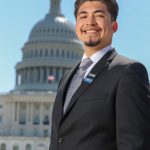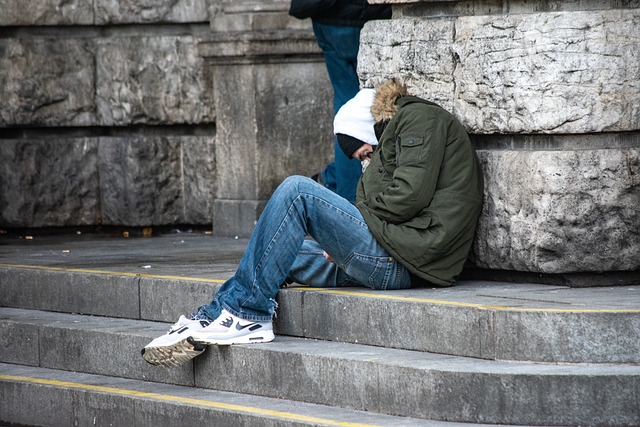Fining unhoused individuals for sleeping in public spaces exposes a critical flaw in the U.S.’ approach to its most vulnerable. The recent Johnson v. Grants Pass ruling underscores the harsh reality faced by those without shelter, penalized for sleeping in public areas with no viable alternatives. This brings to light urgent questions about the broader impact of criminalizing homelessness—how will it affect housing shortages and shape state and national policies?
Like many issues, homelessness has increasingly become a point of contention among the public, revealing a stark divide between conservative and liberal perspectives. This problem extends beyond major cities like Baltimore, worsening in Black and Latino communities nationwide. According to a 2024 report by the Maryland Office of Justice Programs, over 30,000 people in Maryland experience homelessness annually.
Turning Incentives into Reality: Maryland’s Housing Dilemma
The ongoing debate reflects a deep-seated tension in American politics surrounding local control and affordable housing. Recent population influxes of residents in Maryland’s larger counties like Montgomery, Prince George’s, Baltimore, and Howard counties has put additional strain on these systems, complicating efforts to effectively manage resources and housing. Governor Wes Moore’s proposal to provide “incentives, not mandates” to local jurisdictions highlights the necessity for local action, yet also exposes the difficulties in balancing immediate needs with long-term solutions.
County-level housing policies are driven by basic economic principles, where scarcity leads to higher prices. Unfortunately, many counties along Maryland’s I-95 corridor have experienced rapid growth over the past two decades. The pandemic-induced shift from cities to suburban areas, coupled with new job opportunities and rising population, has made these areas increasingly desirable. However, this surge has driven up housing prices and led to a shortage of affordable options. Restrictive permitting policies, zoning, and land-use regulations have exacerbated the problem, often resulting in new developments consisting of luxury condos that are out of reach for working families.
The Unseen Toll: Rising Homelessness and the Latino Community
The rise in homelessness can be directly traced to the severe shortage of affordable housing. Take a drive along Route 1, and you’ll find motels lined with families who’ve been evicted and have nowhere else to turn. Local organizations have stepped up to offer support, but with COVID-19 funding nearly exhausted, they are struggling to meet the demand. Long wait lists are now common, leaving many facing the harsh reality of street-level homelessness with little hope for immediate relief.
So enter the Grant’s Pass ruling, which comes amid a surge in migrants and asylum seekers, particularly unaccompanied Latino children in Maryland. This has worsened the existing housing crisis and further straining resources. As a result, public opinion is shifting, unfairly blaming migrants, who make up only a small part of the homeless population. According to the U.S. Department of Housing and Urban Development, “The Impact of Immigration on Housing Markets and Homelessness,” housing issues in states like Maryland have persisted for decades, long before the recent waves of anti-immigrant rhetoric.
This Grant’s Pass case itself sets a troubling precedent in that it effectively criminalizes poverty in the United States. On a broader scale, it perpetuates a cycle where homelessness and incarceration are interlinked, exacerbating racial inequities in the process. The cycle is stark: individuals in poverty are unable to access the help they desperately need and they are then penalized by a legal system that fails to assist them.
The prospect of many unhoused individuals facing arrest as a direct consequence of this ruling is deeply troubling. This shift could further exacerbate the plight of unhoused people in Maryland. According to the Maryland Office of Justice Programs, nearly half of the state’s unhoused population has been incarcerated at some point in their lives. A study in Baltimore highlights the cyclical nature of homelessness and incarceration. This ruling not only targets homeless Latinos across the country but also intensifies their difficulties, increasing their chances of facing penal consequences. The Maryland Office of Justice Programs reports that individuals who have been incarcerated are ten times more likely to become homeless upon release, compounding their challenges.
The impact of this story is particularly severe for certain populations, especially Latinos. Economic instability in this case forces a difficult choice between paying fines and addressing basic needs, which can lead to criminal records. Latinos are disproportionately affected. According to a 2023 report by the National Alliance to End Homelessness, Latinos comprise one-third of the homeless population in the U.S., with that number rising by 28% in just a year.
Criminalization of Poverty
The urgency of the crisis affecting minority communities is profound and cannot be overstated. A criminal record severely limits employment opportunities, trapping individuals in a vicious cycle of poverty. In Maryland, where over 50% of the poor live on incomes below half of the federal poverty level, this situation is particularly dire. The impact extends far beyond financial struggle. The immense pressure on mental health, compounded by untreated conditions and potential substance abuse issues, only deepens the crisis. The stigma associated with both homelessness and incarceration exacerbates these mental health challenges.
For Latinos, the obstacles are even more daunting. Language and cultural barriers significantly limit access to essential support services. Many Spanish speakers are hesitant to seek help due to fears of immigration checks and a lack of familiarity with the social service system. While Latino rates of homelessness might appear lower compared to African Americans, this is often due to underreporting. Many Latinos, particularly Latino men, rely on large family networks for shelter, moving from one household to another, which can mask the true extent of their housing instability.
Conclusion
The Supreme Court’s Johnson v. Grants Pass ruling represents a dangerous escalation in the criminalization of homelessness, significantly impacting vulnerable populations across Maryland and the nation. This ruling not only penalizes those without shelter for their circumstances but also exacerbates existing housing shortages and deepens racial and economic disparities. The surge in housing costs and the punitive measures against the unhoused, especially within Latino communities, underscore a troubling cycle where poverty leads to criminal records and further marginalization. With severe limitations on access to critical support services, mental health challenges, and barriers to employment, the current situation demands urgent, comprehensive reform. Addressing these issues requires a reevaluation of local and national policies to ensure that solutions prioritize humane treatment and genuine support for the most vulnerable among us.

 ABOUT THE AUTHORS
ABOUT THE AUTHORS
Michelle Muxi and Juan Diego Gonzalez are current Research and Policy Fellows at the League of United Latin American Citizens (LULAC), the largest and oldest Latino civil rights organization in the U.S. Michelle is a Masters student at Georgetown’s Walsh School of Foreign Service and Juan Diego is an undergraduate student at Modesto Junior College.







Recent Comments